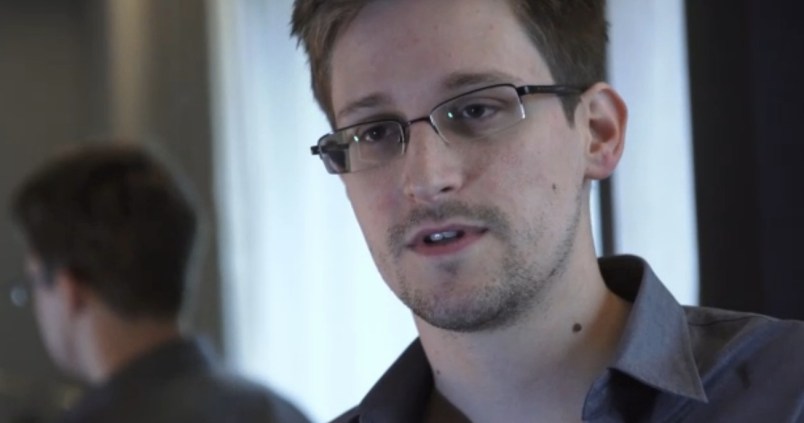Edward Snowden says his host Vladimir Putin should also be held accountable on matters of domestic surveillance, and calling in to Russian television to question the president on Thursday was his way of doing so.
“I was surprised that people who witnessed me risk my life to expose the surveillance practices of my own country could not believe that I might also criticise the surveillance policies of Russia, a country to which I have sworn no allegiance, without ulterior motive,” the former NSA contractor turned leaker wrote in an op-ed published by the Guardian on Friday. “I regret that my question could be misinterpreted, and that it enabled many to ignore the substance of the question – and Putin’s evasive response – in order to speculate, wildly and incorrectly, about my motives for asking it.”
Snowden said he intended to mirror a notable exchange with Sen. Ron Wyden (D-OR) and the director of national intelligence, James Clapper, in which the latter gave an “erroneous” statement about the degree to which the United States collects and stores domestic phone data.
“First of all, our intelligence efforts are strictly regulated by our law,” Putin said. “So how special forces can use this kind of special equipment as they intercept phone calls or follow someone online, you have to get court permission to stalk a particular person. We don’t have a mass system of such interception. And according to our law, it cannot exist.”
Snowden said Putin’s answer was “remarkably similar” to that of President Barack Obama.
“In his response, Putin denied the first part of the question and dodged on the latter,” Snowden said. “There are serious inconsistencies in his denial – and we’ll get to them soon – but it was not the president’s suspiciously narrow answer that was criticised by many pundits. It was that I had chosen to ask a question at all.”
“I understand the concerns of critics,” he continued, “but there is a more obvious explanation for my question than a secret desire to defend the kind of policies I sacrificed a comfortable life to challenge: if we are to test the truth of officials’ claims, we must first give them an opportunity to make those claims.”






